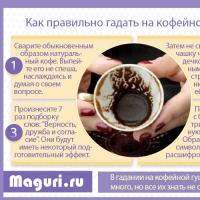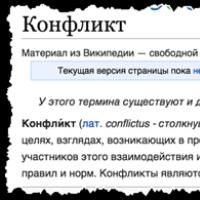Mukhametshin farits. Mukhametshin, Farit Khairulovich. Social, political activities
Deputy of the State Council of the Republic of Tatarstan of the third convocation (2004-2009) from the South-Eastern single-mandate electoral district No. 33. Member of the Presidium of the State Council of the Republic of Tatarstan.
Without interruption from production, he graduated from the Almetyevsk Technical School of the Gas Industry in 1972; in 1979 - Ufa Oil Institute; in 1986 - Saratov Higher Party School.
WORK ACTIVITY:
He began working at the age of 15 as a turner at the Minnibaevsky Gas and Gasoline Plant. Served in the ranks of the Soviet Army. After finishing his service, he worked as an instrumentation mechanic in the production automation shop of the Almetyevneft oilfield management.
Since the early 1970s F.H. Mukhametshin was at party, Soviet and economic work in Almetyevsk: instructor of the industrial and transport department of the city committee of the CPSU; deputy, first deputy chairman, chairman of the executive committee of the city Council of People's Deputies; Secretary, Second Secretary of the City Committee of the CPSU; Head of the department for the preparation of process fluid to maintain reservoir pressure at NGDU Almetyevneft.
Since the late 1980s F.H. Mukhametshin held responsible positions in the Government of the Republic: Minister of Trade; Deputy Chairman of the Council of Ministers; later - Prime Minister of the Republic of Tatarstan.
Since 1998 to present F.Kh. Mukhametshin heads the State Council of Tatarstan.
Competence and political realism, consistency and activity in defending the interests of the republic allowed him to make a significant contribution to the development of democracy and parliamentarism in Tatarstan. Legislative support for the deep political and socio-economic transformations taking place in the republic played a significant role in establishing new mechanisms of interaction with federal government bodies; contributed to improving the living standards of the population; strengthening civil peace, interethnic harmony and stability in society.
SOCIAL ACTIVITY:
From May 1998 to January 2002- Member of the Committee on Federation Affairs, Federal Treaty and Regional Policy of the Federation Council of the Federal Assembly of the Russian Federation. As a member of this Committee, F.Kh. Mukhametshin did a lot to strengthen Russian statehood and develop federal relations; strengthening multilateral ties between the Republic of Tatarstan and the constituent entities of the Russian Federation.
From July 1999 to present- leader of the Republican social movement "Tatarstan - a new century".
From 2001 to 2005- Vice-President of the Association for Economic Cooperation of Subjects of the Russian Federation "Big Volga". F.H. Mukhametshin, in fact, stood at the origins of the formation of the Association. Actively worked on issues of harmonization of regional and federal legislation, problems of strengthening the vertical of state power; paid great attention to the implementation of the socially oriented national policy of the republics and regions of the Volga region.
Since 2001- Member of the delegation of the Russian Federation to the Congress of Local and Regional Authorities of the Council of Europe.
Since 2003- Deputy Chairman of the Committee on Culture and Education of the Chamber of Regions of the Congress of Local and Regional Authorities of the Council of Europe.
From 2004 to present- Chairman of the Committee on Culture and Education of the Chamber of Regions of the Congress of Local and Regional Authorities of the Council of Europe.
From August 2003 to present- Secretary of the Political Council of the Tatarstan regional branch of the All-Russian political party "United Russia".
From March 2005 to March 2007- Coordinator of the Association of Heads of Legislative (Representative) Bodies of State Power of the Subjects of the Russian Federation of the Volga Federal District.
March 2006 to present- Deputy Chairman of the Joint Commission on National Policy and Relations between the State and Religious Associations under the Federation Council of the Federal Assembly of the Russian Federation.
AWARDS:
Awarded for services to the state and great contribution to strengthening friendship and cooperation between peoples Order of Friendship(May 1997).
Awarded for services to the development of Russian statehood and active participation in legislative activities Order of Honor(November 2005).
For services to the development of the economy of the Republic of Tatarstan and the improvement of federal relations, he was awarded a Certificate of Honor from the Government of the Russian Federation and a Certificate of Honor from the Federation Council of the Federal Assembly of the Russian Federation.
Winner of the "Russian National Olympus" award in the "Speaker of the Year" category and the highest public award in Russia - Order "For Honor and Valor"(November 2005).
Awarded a medal "In memory of the 1000th anniversary of Kazan".
F.H. Mukhametshin - Doctor of Political Sciences, Academician of the Academy of Technological Sciences of the Russian Federation. Author of a number of monographs and numerous publications on the problems of the federal structure, interethnic relations, politics and economics of the transition period.
F.H. Mukhametshin rightfully belongs to the new galaxy of politicians who defend the democratic path of development of our society. He is persistent in protecting the interests of the republic and its citizens. It firmly continues its active dialogue with the federal center to expand bilateral cooperation. He takes an active part in solving the complex set of economic and social problems facing Tatarstan. He believes that the main thing at the present stage is the development of institutions of democracy and the market, stimulation of entrepreneurial activity, implementation of effective social policy and strengthening of the foundations of local self-government. Farid Khairulovich is a hardworking and demanding person. Values competence, honesty and decency in people.
Position: Chairman of the State Council of the Republic of Tatarstan, Secretary of the Political Council of the TRO WPP "United Russia" Date and place of birth: May 22, 1947 / Almetyevsk Education: Almetyevsk Gas Industry Technical School (1972), Ufa Oil Institute (1979), Saratov Higher Party School (1986). Doctor of Political Science
Career Stages
1963 - 1966
- turner at the Almetyevsk Gas and Gasoline Plant named after. Lenin Komsomol, driver of the motor transport office of the Almetyevburneft trust.
1968 - 1970
- instrumentation mechanic of the automation workshop of NPU "Almetyevneft".
1970 - 1972
- instructor of the Komsomol city committee.
1972 - 1978
- Instructor of the industrial and transport department of the city committee of the CPSU.
1978 - 1980
- Deputy Chairman of the Executive Committee of the Almetyevsk City Council.
1980 - 1985
- First Deputy Chairman of the Executive Committee of the Almetyevsk City Council.
1985 - 1987
- Secretary, Second Secretary of the Almetyevsk City Committee of the CPSU.
1987 - 1988
- Head of the Almetyevsk Department for the Preparation of Process Fluids to Maintain Reservoir Pressure.
1988 - 1989
- Chairman of the Executive Committee of the Almetyevsk City Council.
1989 - 1990
- Minister of Trade of the TASSR.
1990
- First Secretary of the Almetyevsk City Committee of the CPSU.
1990 - 1991
- Deputy Chairman of the Council of Ministers of the TASSR.
1991 - 1995
- Chairman of the Supreme Council of the Republic of Tatarstan.
1995 - 1998
- Prime Minister of the Republic of Tatarstan.
From 1998 to present- Chairman of the State Council of the Republic of Tatarstan, deputy of the State Council of the Republic of Tatarstan of the fifth convocation.
Social, political activities
Since July 1999- Chairman of the Political Council of the Republican Social Movement “Tatarstan – New Century”.
Since August 2003- Secretary of the Political Council of the Tatarstan regional branch of the All-Russian political party "United Russia".
Since December 2007- Chairman of the Council of the Assembly of Peoples of Tatarstan.
Since 2001- Member of the delegation of the Russian Federation to the Congress of Local and Regional Authorities of the Council of Europe.
2004 - 2010
- Chairman of the Committee on Culture and Education of the Chamber of Regions of the Congress of Local and Regional Authorities of the Council of Europe - Deputy Chairman of the Joint Committee on Culture and Education of the Congress of Local and Regional Authorities of the Council of Europe (during the global reform of the bodies of the Council of Europe, the Committee on Culture and Education was abolished).
Since November 2010- Member of the Bureau of the Assembly of European Regions.
2011 - 2012
- Deputy Chairman of the Committee on Current Issues of the Congress of Local and Regional Authorities of the Council of Europe.
Since October 2012- Chairman of the Committee on Current Issues of the Congress of Local and Regional Authorities of the Council of Europe.
Since December 2012- Chairman of the Commission of the Council of Legislators of the Russian Federation on problems of international cooperation, member of the Presidium of the Council of Legislators.
Honorary titles and awards
Awarded the Order of Merit for the Fatherland, IV degree (2012); Order of Honor (2005); Order of Friendship (1997); medal “In memory of the 300th anniversary of St. Petersburg” (2003); medal “In memory of the 1000th anniversary of Kazan” (2005); Order "For Merit to the Republic of Tatarstan" (2007); Certificate of Honor from the Government of the Russian Federation (1997); Certificate of honor of the Federation Council of the Federal Assembly of the Russian Federation and Certificate of honor of the State Duma of the Federation Council of the Russian Federation (2007); badge of honor of the Federation Council of the Federal Assembly of the Russian Federation “For services in the development of parliamentarism” (2007); insignia “For merits in strengthening cooperation with the Accounts Chamber of the Russian Federation” (2007); winner of the “Russian National Olympus” award in the “Speaker of the Year” category and the highest public award in Russia - the Order of Honor and Valor (2005); medal “In commemoration of the production of the three billionth ton of oil in Tatarstan” (2007); Certificate of Honor from the President of the Russian Federation (2008); medal “For strengthening the financial control of Russia” (2011), the Order of Friendship of the Peoples of Bashkortostan (2012), the Order of Merit for the Fatherland, IV degree (2012), the anniversary medal “Federation Council. 20 years" (2014).
Family status: married, has a son and daughter.
Farid Mukhametshin in stories:
- Farid Mukhametshin: “The provision on direct elections of the President of the Republic of Tajikistan was not removed from the Constitution of the Republic, but was suspended by a special resolution. We will return it in a short time"
- Today in Kazan, the GAZ-21 retro car club opens a new car season
- Farid Mukhametshin: “I can imagine how they sleep with their long legs on airplanes...”
- Farid Mukhametshin: "The Tatarstan - New Century movement does not plan to reorganize into a party"
- Farid Mukhametshin: “I regret that Safarov is leaving. Although I admit that, as an officer, he acts honestly."
- Farid Mukhametshin about the sculpture “Keeper”: “I don’t really like it. It could be better"
- Farid Mukhametshin advised Valery Kandilov to board the “right ships”
- Farid Mukhametshin: “It’s clear to the goat that you can’t create an alternative to Hollywood in Tatarstan”
- Farid Mukhametshin placed personal responsibility for the preservation of cultural heritage monuments on deputies
Mukhametshin, Farit Khairulovich
Chairman of the State Council of the Republic of Tatarstan; born May 22, 1947 in Almetyevsk, Tatar Autonomous Soviet Socialist Republic; graduated from the Almetyevsk Technical School of the Gas Industry in 1971, the Ufa Petroleum Institute in 1976, and the Saratov Higher Secondary School in 1986; He began his career in 1963 as a turner at a gas-gasoline plant, and worked as an instrumentation mechanic; since 1970 he was at Komsomol, party and Soviet work in Almetyevsk: 1970-1972 - instructor of the city committee of the Komsomol, 1972-1978 - instructor of the industrial and transport department of the city committee of the CPSU, 1978-1985 - deputy, first deputy chairman of the Executive Committee of the city People's Council deputies, 1985-1987 - secretary, second secretary of the city committee of the CPSU; 1987-1988 - Head of the Almetyevsk Department for the preparation of process fluid to maintain reservoir pressure in oil fields; 1988-1989 - Chairman of the Executive Committee of the Almetyevsk City Council; 1989-1990 - Minister of Trade of the Republic of Tatarstan; 1990 - First Secretary of the Almetyevsk City Committee of the CPSU; 1990-1991 - Deputy Chairman of the Council of Ministers of the Republic of Tatarstan; 1991-1994 - Chairman of the Supreme Council of the Republic of Tatarstan; 1995-1998 - Prime Minister of the Republic of Tatarstan; elected as a deputy of the Federation Council of the Federal Assembly of the Russian Federation of the first convocation (1993-1995), deputy of the State Council of the Republic of Tatarstan; in May 1998 he was elected chairman of the State Council of the Republic of Tatarstan of the second convocation, in January 2000 - chairman of the State Council of the Republic of the third convocation; since 1998, he was an ex-officio member of the Federation Council of the Federal Assembly of the Russian Federation, a member of the Committee on Federation Affairs, the Federal Treaty and Regional Policy; resigned as a member of the Federation Council of the Russian Federation on January 1, 2002 in accordance with the law on the new procedure for forming the upper house of the Russian parliament; leader of the socio-political movement "Tatarstan - New Century" since 1999; in May 2000, at the founding congress of the All-Russian political public organization - the Unity party (transformed from the movement) was elected a member of the Supervisory Council of this party; by decree of the President of the Russian Federation, he was awarded the Order of Friendship for services to the state and his great contribution to strengthening friendship and cooperation between peoples (May 1997), and was also awarded a Certificate of Honor from the Government of the Russian Federation for his services in developing the economy of the Republic of Tatarstan, improving federal relations and many years of conscientious work; married, has two children.
In July 1999, at the founding congress, he headed the new socio-political movement “Tatarstan - a new century” (TNV), which included a number of parties and movements of a centrist orientation and loyal to the republican authorities. This coalition proclaimed the task of uniting the healthy forces of society and declared loyalty to democratic ideals. The actual goals of TNV coincide with the goals of the “All Russia” movement, headed by the President of Tatarstan M. Shaimiev.
Large biographical encyclopedia. 2009 .
In 1972, he graduated from the Almetyevsk Technical School of the Gas Industry.
Since 1963 - a turner at the gas and gasoline plant named after. Lenin Komsomol in Almetyevsk.
In 1966-1968 he served in the Soviet army.
Since 1968 - mechanic at the Almetyevneft oil field department.
Since 1970 - in Komsomol and party work.
In 1979, he graduated from the Ufa Oil Institute.
From 1985 to 1987 - secretary, then second secretary of the Almetyevsk City Committee of the CPSU.
In 1986, he graduated from the Saratov Higher Party School.
Since 1988 - Chairman of the Executive Committee of the Almetyevsk City Council of People's Deputies.
In 1989-1990 - Minister of Trade of the Tatar Autonomous Soviet Socialist Republic.
In 1990 - first secretary of the Almetyevsk City Committee of the CPSU.
In 1990-1991 - Deputy Chairman of the Council of Ministers of the Tatar SSR.
Since 1991 - Chairman of the Supreme Council of the Tatar SSR, since 1992 - Chairman of the Supreme Council of the Republic of Tatarstan.
In 1995-1998 - Prime Minister of Tatarstan.
From May 1998 to January 2002 - member of the Committee on Federation Affairs, Federal Treaty and Regional Policy of the Federation Council.
Since 2003 - Secretary of the Political Council of the Tatarstan regional branch of the United Russia party. At the elections on December 2, 2007, he was included in the list of candidates for deputies to the State Duma of the Russian Federation of the fifth convocation from United Russia.
Awards
- Insignia “For merits in strengthening cooperation with the Accounts Chamber of the Russian Federation” (2007)
- Order "For Merit to the Republic of Tatarstan" (2007).
- Order of Honor (2005) - for services to the development of Russian statehood and active participation in legislative activities
- Certificate of Honor of the Federation Council of the Federal Assembly of the Russian Federation
- Medal "In memory of the 1000th anniversary of Kazan" (2005)
- Certificate of Honor from the Government of the Russian Federation - for services to the development of the economy of the Republic of Tatarstan, improvement of federal relations and many years of conscientious work
- Honorary badge of the Federation Council of the Federal Assembly of the Russian Federation “For merits in the development of parliamentarism” (2007)
- Certificate of Honor of the State Duma of the Federal Assembly of the Russian Federation (2007).
- Order of Friendship (1997) - for services to the state and great contribution to strengthening friendship and cooperation between peoples
Family
Married. Has a son and daughter. Daughter - Liliya, son - Damir (heads the Kazan branch of Zenit Bank).
Almetyevsk, Tatar ASSR, RSFSR, USSR
2) United Russia
Saratov Higher Party School
Candidate of Sociological Sciences (1996)
 |
Farid Khairulovich Mukhametshin(tat. Farit Khairulla uly Mөkhәmmәtshin; May 22, Almetyevsk, USSR) - Russian statesman and political figure. Doctor of Political Sciences, Academician of the Academy of Technological Sciences of the Russian Federation. Author of a number of monographs and numerous publications on the problems of the federal structure, interethnic relations, politics and economics of the transition period.
Biography
He began his career in 1963 as a turner at the gas-gasoline plant in Almetyevsk, and as a driver in the motor transport office of the Almetyevburneft trust.
1968-1970 - mechanic at the Almetyevneft oil field department.
In 1972, he graduated from the Almetyevsk Technical School of the Gas Industry.
1978-1980 - Deputy Chairman of the Executive Committee of the Almetyevsk City Council of People's Deputies, 1980-1985 - First Deputy Chairman of the Executive Committee of the Almetyevsk City Council of People's Deputies. In 1978-1990 he was elected as a deputy of the Almetyevsk City Council of People's Deputies.
Since 1999 - Deputy Chairman of the Security Council of the Republic of Tatarstan.
Write a review of the article "Mukhametshin, Farid Khairulovich"
Notes
Links
|
|||||||||||||||||||||||||||||||||
| ||||||||||||||||||||||||||||||||||||||||||||||
An excerpt characterizing Mukhametshin, Farid Khairulovich
“Come here,” Rostov said, grabbing Telyanin by the hand. He almost dragged him to the window. “This is Denisov’s money, you took it...” he whispered in his ear.– What?... What?... How dare you? What?...” said Telyanin.
But these words sounded like a plaintive, desperate cry and a plea for forgiveness. As soon as Rostov heard this sound of the voice, a huge stone of doubt fell from his soul. He felt joy and at the same moment he felt sorry for the unfortunate man standing in front of him; but it was necessary to complete the work begun.
“People here, God knows what they might think,” Telyanin muttered, grabbing his cap and heading into a small empty room, “we need to explain ourselves...
“I know this, and I will prove it,” said Rostov.
- I…
Telyanin's frightened, pale face began to tremble with all its muscles; the eyes were still running, but somewhere below, not rising to Rostov’s face, sobs were heard.
“Count!... don’t ruin the young man... this poor money, take it...” He threw it on the table. – My father is an old man, my mother!...
Rostov took the money, avoiding Telyanin’s gaze, and, without saying a word, left the room. But he stopped at the door and turned back. “My God,” he said with tears in his eyes, “how could you do this?”
“Count,” said Telyanin, approaching the cadet.
“Don’t touch me,” Rostov said, pulling away. - If you need it, take this money. “He threw his wallet at him and ran out of the tavern.
In the evening of the same day, there was a lively conversation between the squadron officers at Denisov’s apartment.
“And I’m telling you, Rostov, that you need to apologize to the regimental commander,” said a tall staff captain with graying hair, a huge mustache and large features of a wrinkled face, turning to the crimson, excited Rostov.
Staff captain Kirsten was demoted to soldier twice for matters of honor and served twice.
– I won’t allow anyone to tell me that I’m lying! - Rostov screamed. “He told me I was lying, and I told him he was lying.” It will remain so. He can assign me to duty every day and put me under arrest, but no one will force me to apologize, because if he, as a regimental commander, considers himself unworthy of giving me satisfaction, then...
- Just wait, father; “Listen to me,” the captain interrupted the headquarters in his bass voice, calmly smoothing his long mustache. - In front of other officers, you tell the regimental commander that the officer stole...
“It’s not my fault that the conversation started in front of other officers.” Maybe I shouldn’t have spoken in front of them, but I’m not a diplomat. Then I joined the hussars, I thought that there was no need for subtleties, but he told me that I was lying... so let him give me satisfaction...
- This is all good, no one thinks that you are a coward, but that’s not the point. Ask Denisov, does this look like something for a cadet to demand satisfaction from the regimental commander?
Denisov, biting his mustache, listened to the conversation with a gloomy look, apparently not wanting to engage in it. When asked by the captain's staff, he shook his head negatively.
“You tell the regimental commander about this dirty trick in front of the officers,” the captain continued. - Bogdanych (the regimental commander was called Bogdanych) besieged you.
- He didn’t besiege him, but said that I was telling a lie.
- Well, yes, and you said something stupid to him, and you need to apologize.
- Never! - Rostov shouted.
“I didn’t think this from you,” the captain said seriously and sternly. “You don’t want to apologize, but you, father, not only before him, but before the entire regiment, before all of us, you are completely to blame.” Here's how: if only you had thought and consulted on how to deal with this matter, otherwise you would have drunk right in front of the officers. What should the regimental commander do now? Should the officer be put on trial and the entire regiment be soiled? Because of one scoundrel, the whole regiment is disgraced? So, what do you think? But in our opinion, not so. And Bogdanich is great, he told you that you are telling lies. It’s unpleasant, but what can you do, father, they attacked you yourself. And now, as they want to hush up the matter, because of some kind of fanaticism you don’t want to apologize, but want to tell everything. You are offended that you are on duty, but why should you apologize to an old and honest officer! No matter what Bogdanich is, he’s still an honest and brave old colonel, it’s such a shame for you; Is it okay for you to dirty the regiment? – The captain’s voice began to tremble. - You, father, have been in the regiment for a week; today here, tomorrow transferred to adjutants somewhere; you don’t care what they say: “there are thieves among the Pavlograd officers!” But we care. So, what, Denisov? Not all the same?
Denisov remained silent and did not move, occasionally glancing at Rostov with his shining black eyes.
“You value your own fanabery, you don’t want to apologize,” the headquarters captain continued, “but for us old men, how we grew up, and even if we die, God willing, we will be brought into the regiment, so the honor of the regiment is dear to us, and Bogdanich knows this.” Oh, what a road, father! And this is not good, not good! Be offended or not, I will always tell the truth. Not good!
And the headquarters captain stood up and turned away from Rostov.
- Pg "avda, chog" take it! - Denisov shouted, jumping up. - Well, G'skeleton! Well!
Rostov, blushing and turning pale, looked first at one officer, then at the other.
- No, gentlemen, no... don’t think... I really understand, you’re wrong to think about me like that... I... for me... I’m for the honor of the regiment. So what? I will show this in practice, and for me the honor of the banner... well, it’s all the same, really, I’m to blame!.. - Tears stood in his eyes. - I’m guilty, I’m guilty all around!... Well, what else do you need?...
“That’s it, Count,” the captain of staff shouted, turning around, hitting him on the shoulder with his big hand.
“I’m telling you,” Denisov shouted, “he’s a nice little guy.”
“That’s better, Count,” the headquarters captain repeated, as if for his recognition they were beginning to call him a title. - Come and apologize, your Excellency, yes sir.
“Gentlemen, I’ll do everything, no one will hear a word from me,” Rostov said in a pleading voice, “but I can’t apologize, by God, I can’t, whatever you want!” How will I apologize, like a little one, asking for forgiveness?
Denisov laughed.
- It's worse for you. Bogdanich is vindictive, you will pay for your stubbornness,” said Kirsten.
- By God, not stubbornness! I can’t describe to you what a feeling, I can’t...
“Well, it’s your choice,” said the headquarters captain. - Well, where did this scoundrel go? – he asked Denisov.
“He said he was sick, and the manager ordered him to be expelled,” Denisov said.
“It’s a disease, there’s no other way to explain it,” said the captain at the headquarters.
“It’s not a disease, but if he doesn’t catch my eye, I’ll kill him!” – Denisov shouted bloodthirstyly.
Zherkov entered the room.
- How are you? - the officers suddenly turned to the newcomer.
- Let's go, gentlemen. Mak surrendered as a prisoner and with the army, completely.
- You're lying!
- I saw it myself.
- How? Have you seen Mack alive? with arms, with legs?
- Hike! Hike! Give him a bottle for such news. How did you get here?
“They sent me back to the regiment again, for the devil’s sake, for Mack.” The Austrian general complained. I congratulated him on Mak’s arrival... Are you from the bathhouse, Rostov?
- Here, brother, we have such a mess for the second day.
The regimental adjutant came in and confirmed the news brought by Zherkov. We were ordered to perform tomorrow.
- Let's go, gentlemen!
- Well, thank God, we stayed too long.
Kutuzov retreated to Vienna, destroying behind him bridges on the rivers Inn (in Braunau) and Traun (in Linz). On October 23, Russian troops crossed the Enns River. Russian convoys, artillery and columns of troops in the middle of the day stretched through the city of Enns, on this side and on the other side of the bridge.
The day was warm, autumn and rainy. The vast perspective that opened up from the elevation where the Russian batteries stood protecting the bridge was suddenly covered with a muslin curtain of slanting rain, then suddenly expanded, and in the light of the sun objects as if covered with varnish became visible far away and clearly. A town could be seen underfoot with its white houses and red roofs, a cathedral and a bridge, on both sides of which masses of Russian troops poured, crowding. At the bend of the Danube one could see ships, an island, and a castle with a park, surrounded by the waters of the Ensa confluence with the Danube; one could see the left rocky bank of the Danube covered with pine forests with the mysterious distance of green peaks and blue gorges. The towers of the monastery were visible, protruding from behind a pine forest that seemed untouched; far ahead on the mountain, on the other side of Ens, enemy patrols could be seen.
Between the guns, at a height, the chief of the rearguard, a general, and a retinue officer stood in front, examining the terrain through a telescope. Somewhat behind, Nesvitsky, sent from the commander-in-chief to the rearguard, sat on the trunk of a gun.
The Cossack accompanying Nesvitsky handed over a handbag and a flask, and Nesvitsky treated the officers to pies and real doppelkümel. The officers joyfully surrounded him, some on their knees, some sitting cross-legged on the wet grass.
- Yes, this Austrian prince was not a fool to build a castle here. Nice place. Why don't you eat, gentlemen? - Nesvitsky said.
“I humbly thank you, prince,” answered one of the officers, enjoying talking with such an important staff official. - Beautiful place. We walked past the park itself, saw two deer, and what a wonderful house!
“Look, prince,” said the other, who really wanted to take another pie, but was ashamed, and who therefore pretended that he was looking around the area, “look, our infantry have already climbed there.” Over there, in the meadow outside the village, three people are dragging something. “They will break through this palace,” he said with visible approval.
“Both,” said Nesvitsky. “No, but what I would like,” he added, chewing the pie in his beautiful, moist mouth, “is to climb up there.”
He pointed to a monastery with towers visible on the mountain. He smiled, his eyes narrowed and lit up.
- But that would be good, gentlemen!
The officers laughed.
- At least scare these nuns. Italians, they say, are young. Really, I would give five years of my life!
“They’re bored,” said the bolder officer, laughing.
Meanwhile, the retinue officer standing in front was pointing something out to the general; the general looked through the telescope.
“Well, so it is, so it is,” the general said angrily, lowering the receiver from his eyes and shrugging his shoulders, “and so it is, they will attack the crossing.” And why are they hanging around there?
On the other side, the enemy and his battery were visible to the naked eye, from which milky white smoke appeared. Following the smoke, a distant shot was heard, and it was clear how our troops hurried to the crossing.
Nesvitsky, puffing, stood up and, smiling, approached the general.
- Would your Excellency like to have a snack? - he said.
“It’s not good,” said the general, without answering him, “our people hesitated.”
– Shouldn’t we go, Your Excellency? - said Nesvitsky.
“Yes, please go,” said the general, repeating what had already been ordered in detail, “and tell the hussars to be the last to cross and light the bridge, as I ordered, and to inspect the flammable materials on the bridge.”
“Very good,” answered Nesvitsky.
He called to the Cossack with the horse, ordered him to remove his purse and flask, and easily threw his heavy body onto the saddle.
“Really, I’ll go see the nuns,” he said to the officers, who looked at him with a smile, and drove along the winding path down the mountain.
- Come on, where will it go, captain, stop it! - said the general, turning to the artilleryman. - Have fun with boredom.
- Servant to the guns! - the officer commanded.
And a minute later the artillerymen ran out cheerfully from the fires and loaded.
- First! - a command was heard.
Number 1 bounced smartly. The gun rang metallic, deafening, and a grenade flew whistling over the heads of all our people under the mountain and, not reaching the enemy, showed with smoke the place of its fall and burst.
The faces of the soldiers and officers brightened at this sound; everyone got up and began observing the visible movements of our troops below and in front of us - the movements of the approaching enemy. At that very moment the sun completely came out from behind the clouds, and this beautiful sound of a single shot and the shine of the bright sun merged into one cheerful and cheerful impression.
Two enemy cannonballs had already flown over the bridge, and there was a crush on the bridge. In the middle of the bridge, having dismounted from his horse, pressed with his thick body against the railing, stood Prince Nesvitsky.
He, laughing, looked back at his Cossack, who, with two horses in the lead, stood a few steps behind him.
As soon as Prince Nesvitsky wanted to move forward, the soldiers and carts again pressed on him and again pressed him against the railing, and he had no choice but to smile.
- What are you, my brother! - the Cossack said to the Furshtat soldier with the cart, who was pressing on the infantry crowded with the very wheels and horses, - what are you! No, to wait: you see, the general has to pass.
But furshtat, not paying attention to the name of the general, shouted at the soldiers blocking his way: “Hey!” fellow countrymen! keep left, wait! “But the fellow countrymen, crowding shoulder to shoulder, clinging with bayonets and without interruption, moved along the bridge in one continuous mass. Looking down over the railing, Prince Nesvitsky saw the fast, noisy, low waves of Ens, which, merging, rippling and bending around the bridge piles, overtook one another. Looking at the bridge, he saw equally monotonous living waves of soldiers, coats, shakos with covers, backpacks, bayonets, long guns and, from under the shakos, faces with wide cheekbones, sunken cheeks and carefree tired expressions, and moving legs along the sticky mud dragged onto the boards of the bridge . Sometimes, between the monotonous waves of soldiers, like a splash of white foam in the waves of Ens, an officer in a raincoat, with his own physiognomy different from the soldiers, squeezed between the soldiers; sometimes, like a chip winding through a river, a foot hussar, an orderly or a resident was carried across the bridge by waves of infantry; sometimes, like a log floating along the river, surrounded on all sides, a company or officer's cart, piled to the top and covered with leather, floated across the bridge.

 Sign of cutting your finger: who thinks about you
Sign of cutting your finger: who thinks about you Fortune telling on coffee grounds: Flower - Meaning of the symbol
Fortune telling on coffee grounds: Flower - Meaning of the symbol Methods of fortune telling for the loss of a lost item
Methods of fortune telling for the loss of a lost item Soup with beans and chicken
Soup with beans and chicken Tuscan white bean soup
Tuscan white bean soup Test “Are you a conflict-ridden person?”
Test “Are you a conflict-ridden person?” Baby meatballs with gravy
Baby meatballs with gravy